California is reopening.
Technically, the state remains in “Stage 2,” which has opened manufacturing plants, offices, curbside retail and other activities. Most counties, however, were approved for further reopening, including dine-in eating and shopping malls. And last week, the state began allowing qualifying counties to open movie theaters, bars, gyms and even hotels.
As this reopening process accelerates, there’s a fundamental question about who should assume the risk of COVID-19 now that we have started resuming our lives.
Currently, that burden rests on the backs of California employers who fund the workers’ compensation system. According to an executive order issued by Gov. Gavin Newsom on May 6, the workers’ compensation system is being tasked with serving as a societal safety net, stretched far beyond its intended purpose of compensating for workplace injuries and illness.
The order mandates that any positive case of COVID-19 reported by someone within 14 days of leaving their house for work is “presumed” to be work-related. In workers’ comp lingo, a presumption means that the legal standard is changed. Rather than a worker showing how their injury or illness was work-related, a presumption for COVID-19 means it falls on the employer to prove it was not work-related.
In effect, employers will have to absorb any case of COVID-19 among their workers, regardless of where they may have caught the illness. Medical treatment that would have been provided to these workers through their employer health benefits or other health program will now be laid at the doorstep of the workers’ compensation system.
To be fair, removing the burden of proof from frontline “essential workers” who continued to work in the early days of California’s lockdown would have been reasonable. While most people were sheltered in their homes and only ventured out for the necessities, public safety and health care workers were clearly facing higher exposure risk through their jobs to keep the rest of us safe and cared for.
But the governor’s order extends to all workers. It continues through July 5. And there’s no evidence that workers’ compensation claims for COVID-19 were being denied in cases where there was a positive test
Now, state lawmakers have proposed measures that would expand the governor’s order even further.
The breadth and longevity of these proposals have set California’s reopening on a collision course with the workers’ compensation system. Presumptions – by their nature – lower the review standard to the point where non-work claims can pour in.
Here’s the problem: Millions of Californians are not simply returning to work as part of our reopening. They are returning to their own, personal lives. They are resuming shopping, eating at restaurants, recreation and general socializing. Some may move cautiously, but others may not.
Forcing employers to pay for virtually every new case of COVID-19 as a workers’ compensation claim, when it may not have any connection to work, is unfair and will cost employers billions of additional dollars. The time-tested process of determining whether an injury or illness is work-related should remain the standard for COVID-19.
As we move through the stages of reopening, lawmakers should avoid laying an even heavier burden on employers who are focused on delivering an economic recovery for California.
Aaron Hichman is president of the California Retail Hardware Owners Association, a community of independent hardware stores, home centers and lumber yards dedicated to helping each other succeed.
This piece was originally published in the Mercury News. To view the original piece, click here.








